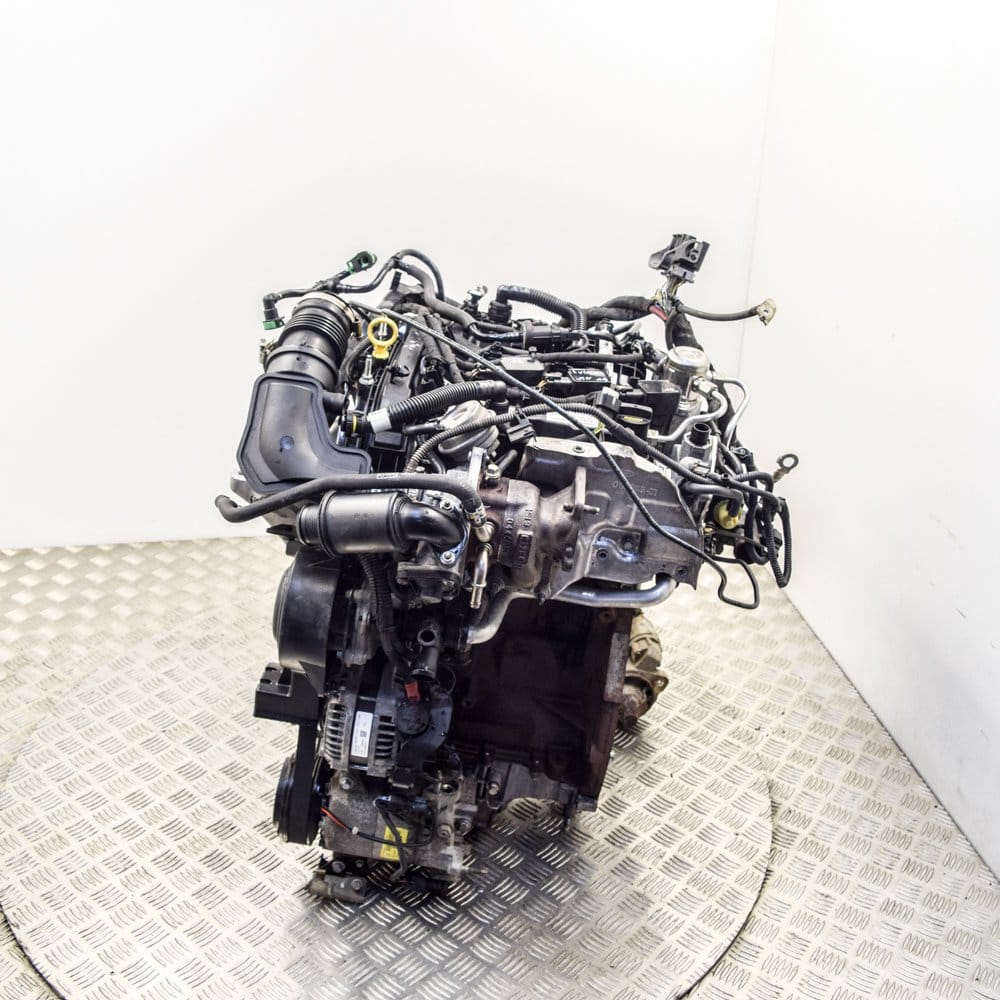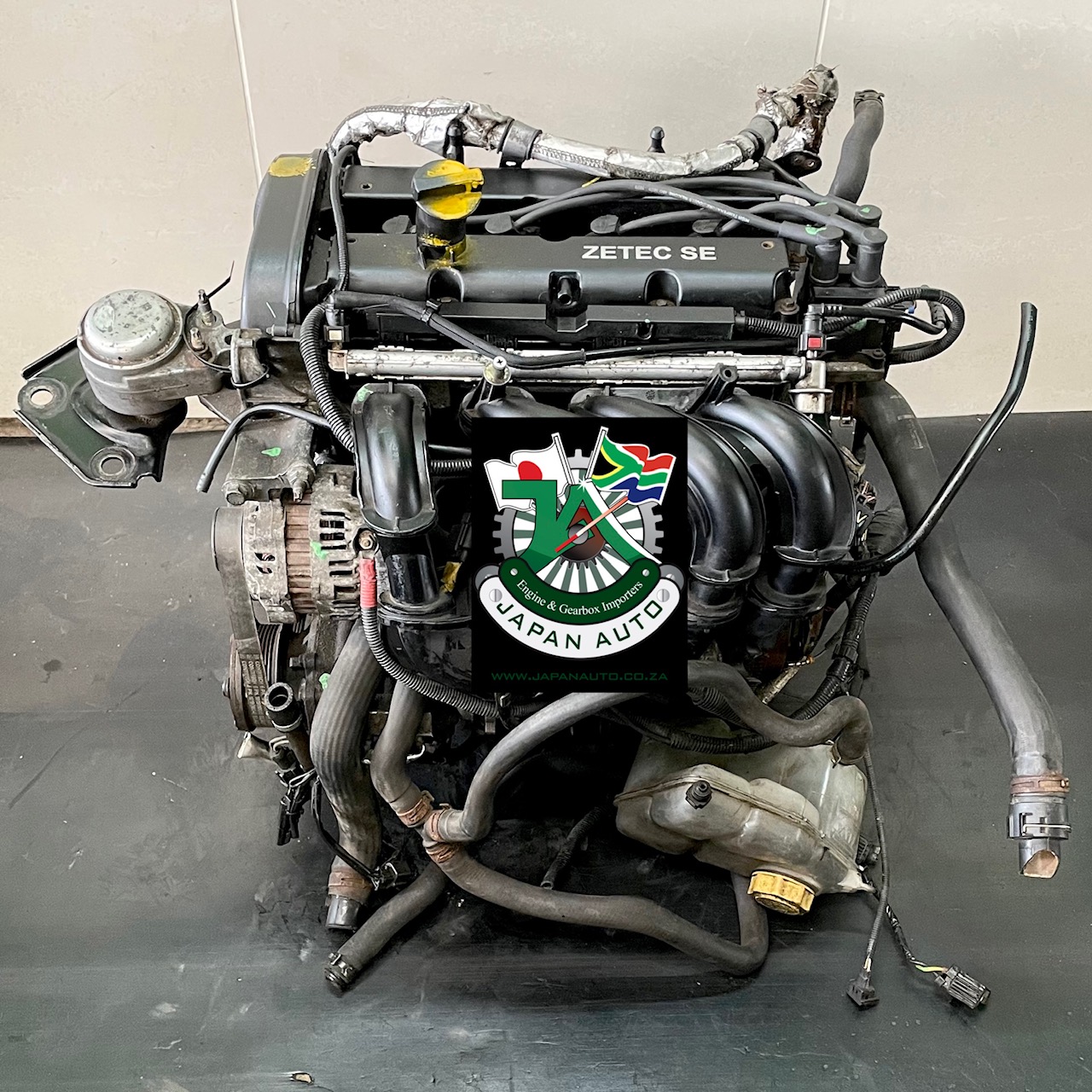Discover the Latest Ford Fiesta Engine Upgrades for Enhanced Power
Discover the Latest Ford Fiesta Engine Upgrades for Enhanced Power
Blog Article
The Future of Engines: Developments Driving Lasting Power Solutions
As the automobile sector browses the critical transition in the direction of sustainability, the future of engines is progressively defined by groundbreaking technologies. Electric engine innovations, alongside encouraging developments in hydrogen fuel cells and biofuels, are reshaping the landscape of power services.
Electric Engine Developments
The development of electric engine growths represents a critical change in the aerospace and automotive industries, driven by the immediate demand for sustainable choices to fossil gas. This transition is characterized by significant improvements in battery technology, power electronics, and electric motor style, which collectively improve the efficiency and efficiency of electrical engines.
Recent technologies have resulted in the creation of lighter, a lot more energy-dense batteries, such as lithium-silicon and solid-state batteries, which guarantee longer arrays and much shorter billing times. Additionally, improvements in electrical motor performance, such as making use of long-term magnets and advanced cooling systems, enable electric engines to run properly under varying conditions. These improvements not just enhance automobile performance but additionally contribute to a decrease in total energy consumption.
Moreover, the integration of innovative software algorithms has actually optimized energy management in electric cars, enabling regenerative stopping and anticipating billing techniques. As producers progressively accept electrical propulsion, the aerospace and auto fields are witnessing a paradigm change towards greener innovations. This advancement not just satisfies regulatory demands however additionally aligns with consumer preferences for eco-friendly transportation solutions, solidifying electrical engines as a keystone of future sustainable mobility.
Advancements in Biofuels
As the auto and aerospace sectors increasingly focus on lasting energy sources, advancements in biofuels become a complementary remedy to electrical engines. Biofuels, originated from natural products such as plants, waste, and algae, provide an ingenious opportunity for minimizing greenhouse gas discharges and reliance on nonrenewable fuel sources.
Recent research study has actually focused on boosting the performance and sustainability of biofuel manufacturing. Second-generation biofuels make use of non-food feedstocks, decreasing competition with food supply and decreasing ecological impact. Innovations in synthetic biology have actually enabled the design of bacteria to generate biofuels more effectively, leading to greater yields and lower production costs.
Additionally, the development of drop-in biofuels enables for smooth integration into existing facilities, making it possible for a smoother change for markets generally depending on fossil gas. ford fiesta engine. These fuels can be used in present engines without alterations, promoting their fostering across different fields
Investments in biofuel technology, along with supportive plans, are vital to drive development and scalability. As the international area seeks to combat environment modification, biofuels offer a practical, prompt solution that aligns with the overarching objective of sustainability in transport and aviation.
Hydrogen Gas Cell Modern Technology
A growing variety of business and scientists are discovering hydrogen fuel cell innovation as a sensible option to conventional source of power in transportation and energy systems. This innovation transforms chemical power from hydrogen right into electricity through an electrochemical response, with water as the only byproduct, making it an eco pleasant alternative.
The core of hydrogen gas cells is the fuel cell stack, where hydrogen molecules are divided into protons and electrons. The flow of electrons produces electrical power, while protons relocate with a membrane to integrate with oxygen from the air, creating water. This process results in high effectiveness and reduced emissions, positioning hydrogen gas cells as a vital player in the transition to lasting power.
Considerable developments have actually been made in boosting the longevity and performance of gas cells, together with decreasing costs through cutting-edge production techniques. Additionally, the advancement find more information of hydrogen manufacturing techniques, such as electrolysis powered by renewable power resources, boosts the sustainability of the total system. As infrastructure for hydrogen refueling expands and production techniques become much more reliable, hydrogen gas cell innovation holds fantastic promise for decarbonizing numerous industries, consisting of sturdy transport and fixed power generation.
Crossbreed Equipments and Their Effect
Hybrid systems stand for a substantial development in sustainable engine technology, combining conventional interior combustion engines with electrical propulsion to optimize power effectiveness and reduce exhausts (ford fiesta engine). This dual technique permits vehicles to use both power sources, allowing higher versatility in power intake and minimizing reliance on nonrenewable fuel sources

In enhancement to ecological benefits, crossbreed systems offer customers a sensible change towards fully electric automobiles. They relieve range anxiousness by integrating the comfort of gasoline with the benefits of electric propulsion, making them an appealing option for a wider audience. As makers spend in hybrid innovation, the advancement of more innovative battery systems and lightweight materials continues to boost performance. Overall, hybrid systems represent a critical step towards achieving lasting transport and dealing with the immediate requirement for eco friendly power solutions.
The Role of AI in Engine Style
Leveraging sophisticated algorithms and machine understanding techniques, the vehicle market is increasingly integrating man-made intelligence (AI) into engine layout procedures. AI boosts the efficiency and efficiency of design by examining substantial datasets to identify optimum configurations and performance specifications. This capability permits engineers to simulate numerous operating problems and forecast engine actions under numerous situations, considerably decreasing the time and expense connected with conventional prototyping approaches.
In addition, AI facilitates the development of sophisticated materials and combustion processes customized for sustainability. By maximizing fuel navigate here efficiency and decreasing discharges, AI-driven designs straighten with global efforts targeted at decreasing the carbon impact of vehicle engines. Artificial intelligence formulas can likewise predict maintenance demands, causing improved dependability and longevity of engine parts.
Furthermore, AI is crucial in the combination of electrification modern technologies, such as crossbreed systems, where it can maximize battery management and energy healing procedures. As the market moves in the direction of more lasting power options, the function of AI in engine style becomes significantly important, driving technology and boosting the performance of future engines. Eventually, the collaboration between AI and engine design proclaims a new period of smarter, cleaner, and a lot more effective automobile innovations.

Verdict
In verdict, the future of engines is being formed by a merging of innovative modern technologies that prioritize sustainability. Electric engine improvements, biofuel developments, hydrogen gas cells, and crossbreed systems jointly contribute to a considerable decrease in emissions and ecological influence.
Electric engine improvements, along with encouraging developments in hydrogen fuel cells and biofuels, are reshaping the landscape of go to the website power remedies. Furthermore, improvements in electrical motor effectiveness, such as the usage of long-term magnets and progressed cooling systems, enable electric engines to run efficiently under differing problems. By enhancing fuel performance and lessening exhausts, AI-driven styles line up with global campaigns aimed at minimizing the carbon footprint of automobile engines. As the market relocates towards even more lasting power solutions, the role of AI in engine design becomes progressively important, driving advancement and boosting the performance of future engines. Electric engine improvements, biofuel growths, hydrogen gas cells, and crossbreed systems collectively contribute to a substantial reduction in emissions and environmental effect.
Report this page